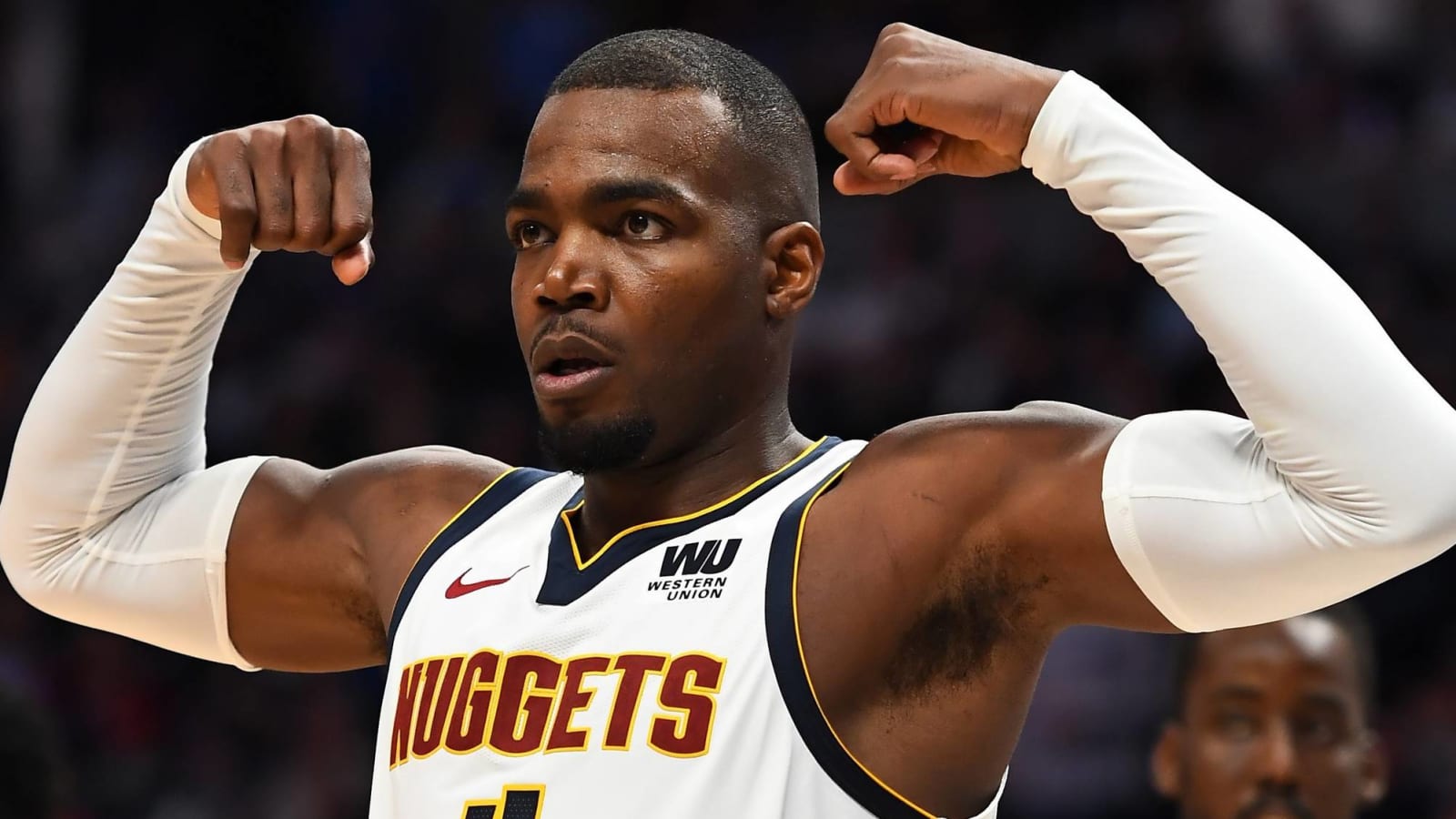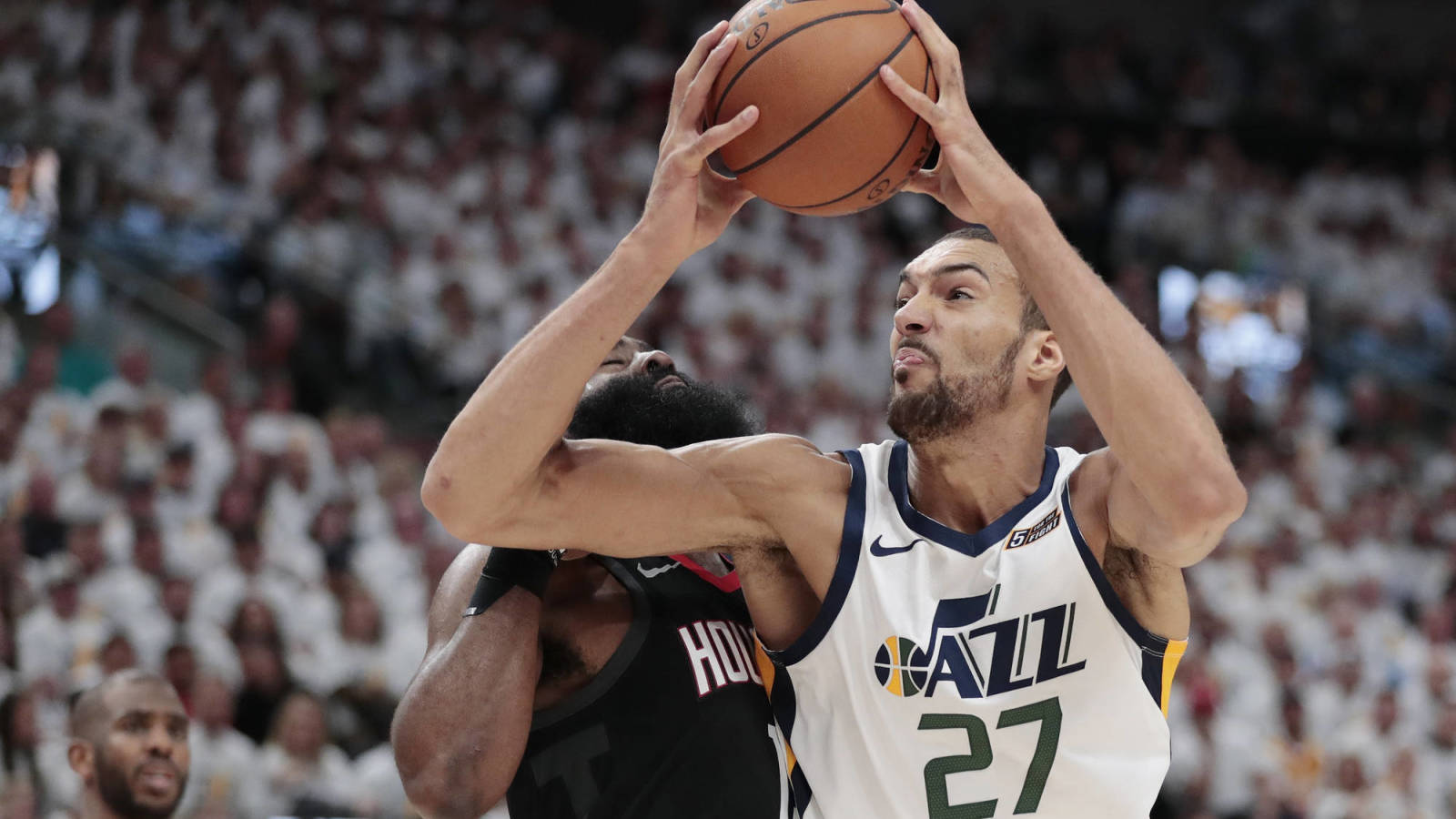
Don't sleep on Nuggets, Jazz in muscle-bound West
The story of the NBA offseason was big moves in big markets. The Lakers traded for Anthony Davis and signed a collection of former All-Stars and NBA champions to round out the roster. Their cross-arena rivals the Clippers signed Kawhi Leonard, traded for Paul George, and are the odds-on title favorites. Kevin Durant and Kyrie Irving teamed up in Brooklyn, launching the Nets into the upper echelon of the Eastern Conference and to undisputed dominance of the Big Apple.
But in all the excitement, player movement, and Los Angeles mural wars, everyone is sleeping on two small-market powerhouses, the Denver Nuggets and Utah Jazz.
The Nuggets won 54 games last season, second in the Western Conference. Then they traded for Jerami Grant, a 25-year-old forward who made 115 three-pointers last season at a 39 percent clip. They brought back Paul Millsap and signed a long-term extension with 22-year-old Jamal Murray, who averaged 18 points last season.
Were those moves flashy? No, but when your 54-win team has a core of players 25 and under locked up for years, you don’t need blockbusters; you need block stabilizers. Grant is a great supporting piece who can play anywhere in the front court, lottery pick Michael Porter Jr. is back after a redshirt rookie season, and they’ll enjoy the benefits of continuity by returning their entire playoff rotation. But it’s a sign of Denver’s relative anonymity that superstar center Nikola Jokic finished fourth in the MVP voting -- but only seventh among front-court players in the All-Star vote in the West.
Speaking of All-Star snubs, the Jazz did make a blockbuster deal, trading for Mike Conley, generally considered the best player in the NBA to never be an All-Star. They also beefed up their scoring by signing Bojan Bogdanovic to a free-agent deal. Bogdanovic and Joe Ingles may be the best-shooting and most balding, dad-bodied front-court duo in the league, but it’s exactly the floor-stretching combination Utah needs to provide space for Rudy Gobert and Donovan Mitchell. Jeff Green and Ed Davis were low-profile signings that should greatly strengthen the Jazz bench.
But despite averaging almost 50 wins the past three seasons, the Jazz is also relatively unknown. Gobert sobbed after his All-Star snub, after the reigning Defensive Player of the Year got fewer fan votes than Carmelo Anthony, who was released in mid-November. To be fair, he lost a million-dollar bonus, and I’ve teared up before over losing a twenty-dollar bill.
Is there a bias against these small-market teams? To a degree. The Nuggets and Jazz simply don’t have the same national following as the Lakers, Celtics and wretched Knicks, but it’s not like they’re invisible. The Jazz have 17 games on TNT and ESPN in 2019-20, while Denver has 16 -– by comparison, the Lakers have 26, plus five games on ABC. There’s structural disadvantages as well. Due to the spread-out nature of the Northwest Division -– Portland and Minneapolis are 1,700 miles apart –- these teams are always among the league leaders in travel miles (Utah is No. 1, Denver is sixth). Of course, that’s probably matched by the increased home-court advantage they get from playing at high altitude.

Denver and Utah may have trouble keeping superstars, but recently, that hasn’t been a disadvantage. Gordon Hayward left for Boston in 2017, but after his horrific injury, his contract has been a millstone for the Celtics. Anthony and Deron Williams both forced trades to New York, but those deals were huge wins for the Nuggets and Jazz. Denver parlayed Melo into a smorgasbord of assets, including Danilo Gallinari, Raymond Felton, and the pick that became Murray. They also flipped a Knicks pick for Andre Iguodala, who led the Nuggets to their best record in 2012-13. When Williams exited Salt Lake City, the Jazz got Devin Harris and the No. 3 picks in the 2010 and 2011 drafts (Derrick Favors and Enes Kanter). There are no guarantees in any city in the player movement era, but the Jazz did manage to keep Karl Malone and John Stockton together for 19 years.
Will players come to small markets? Denver’s biggest recent signing was Millsap, who was coming off an All-Star season in Atlanta. He’s not glamorous, but “Streetball Paul” was a great pickup. Plus, it doesn’t seem like the Broncos ever have trouble luring free agents to Denver. The Jazz has had a few big gets, luring Carlos Boozer from the Cavaliers (in a controversial move that made current Lakers GM Rob Pelinka resign as his agent) in 2004. In 2016, they got seven-time All-Star (and future Hall of Famer) Joe Johnson, who led them to a playoff series win in a prelude to his superstar career in the BIG3. But getting Bogdanovic proves desirable players really will go to Salt Lake City, as Bojan was clearly a top-15 player in perhaps the most loaded free-agent class of all time.
Do these cities believe there’s a bias? Undoubtedly. Utah in particular seems to seek out perceived disrespect, whether it’s Gobert’s All-Star rejection, or Donovan Mitchell’s extended and embarrassing campaign to win the Rookie of the Year Award through semantics. It extends to the writers covering the team as well: A Jazz blogger “misheard” Steph Curry and the Warriors mocking the Jazz, almost as if he was trying to hear negative things about the home team.
Perhaps it’s simply defensiveness due to Salt Lake City’s reputation for being hostile to black players. After all, at the time of Vince Carter’s birth, African-Americans still couldn’t join the Mormon priesthood. The organization is certainly making progress, but things don’t change overnight.
While the media might be ignoring the Nuggets and Jazz, the gamblers certainly aren’t. DraftKings has them pegged for 52.5 and 53.5 wins respectively, a higher total than the Lakers at 51.5. And while the veteran-laden teams in bigger cities may end up triumphant this season, don’t be surprised if the next decade begins with young dynasties in the Rocky Mountains. At least until Zion Williamson and the even-smaller-market Pelicans hit their stride.
More must-reads:
- How eight NBA title contenders will play in 2019-2020
- Grading the offseason for every NBA team
- The 'Most points in a playoff game by team' quiz
Breaking News
Customize Your Newsletter
 +
+
Get the latest news and rumors, customized to your favorite sports and teams. Emailed daily. Always free!

